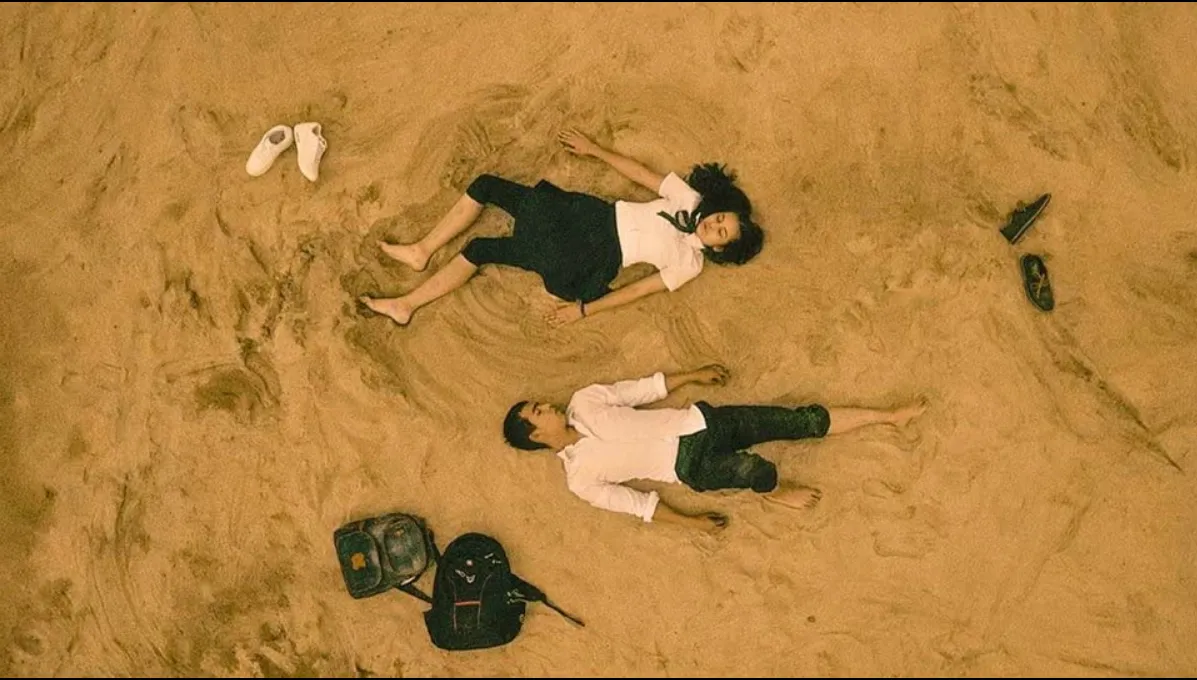
Journey Through Central Asia: Films From Uzbekistan
Before writing this, and most of my posts, I can’t help but thinking: why would people be interested in reading about cultures far from their reality? Why would they want to read an article about Cambodia’s cinematic heritage or films from Uzbekistan in this case?
There are probably different answers to this question but for me, one thing is for sure: I want to keep encouraging an immersion into cultures we westerners have little or no grasp. Does it feel like scratching the surface of admittedly huge topics? Yes, sometimes it does. But what if we start addressing the much-needed shift towards a more inclusive perception of cinema by scratching the surface little by little till we reach the core?
That being said, the geographic and population center of Central Asia, Uzbekistan has a long history of cinematic heritage. The foundations for the national cinematography of Uzbekistan were laid with the establishment of the film studio Uzbekfilm (also known as Uzbekkino) in 1924.
In this post, I am going to take a closer look at eight films that reflect the turbulent history of the area as well as the experiences of the people living there.
Delighted by You, 1958 (Maftuningman)
Directed by A. Akbarxoʻjayev
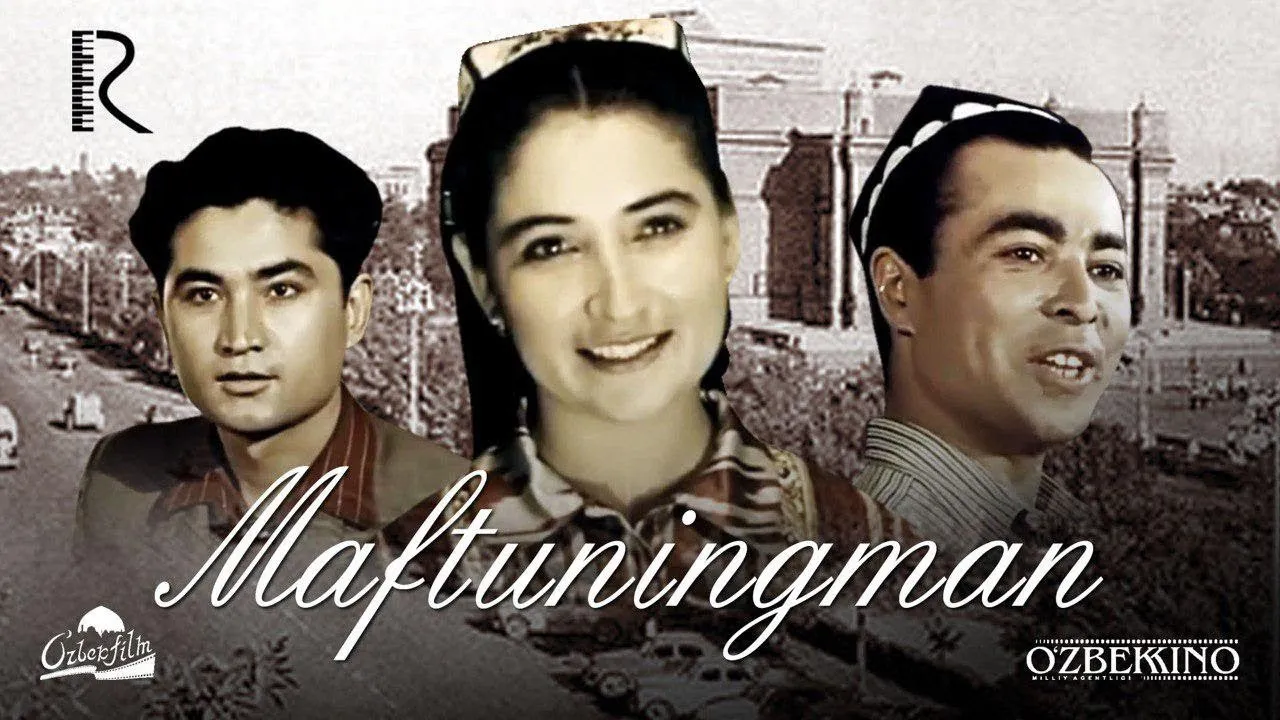
Maftuningman is a comedy musical about two filmmakers, who embark on a journey to find actors for their upcoming musical. Depicting various regions of Uzbekistan and their traditions, this enjoyable film holds a special place in the history of Uzbekistan cinema. Its catchy songs —that are still remembered by many Uzbeks— along with an entertaining plot make this film a great piece of Uzbek cinema.
The film is available on YouTube but with no English subtitles.
Tenderness, 1967 (Nezhnost)
Directed by Elyor Ishmukhamedov
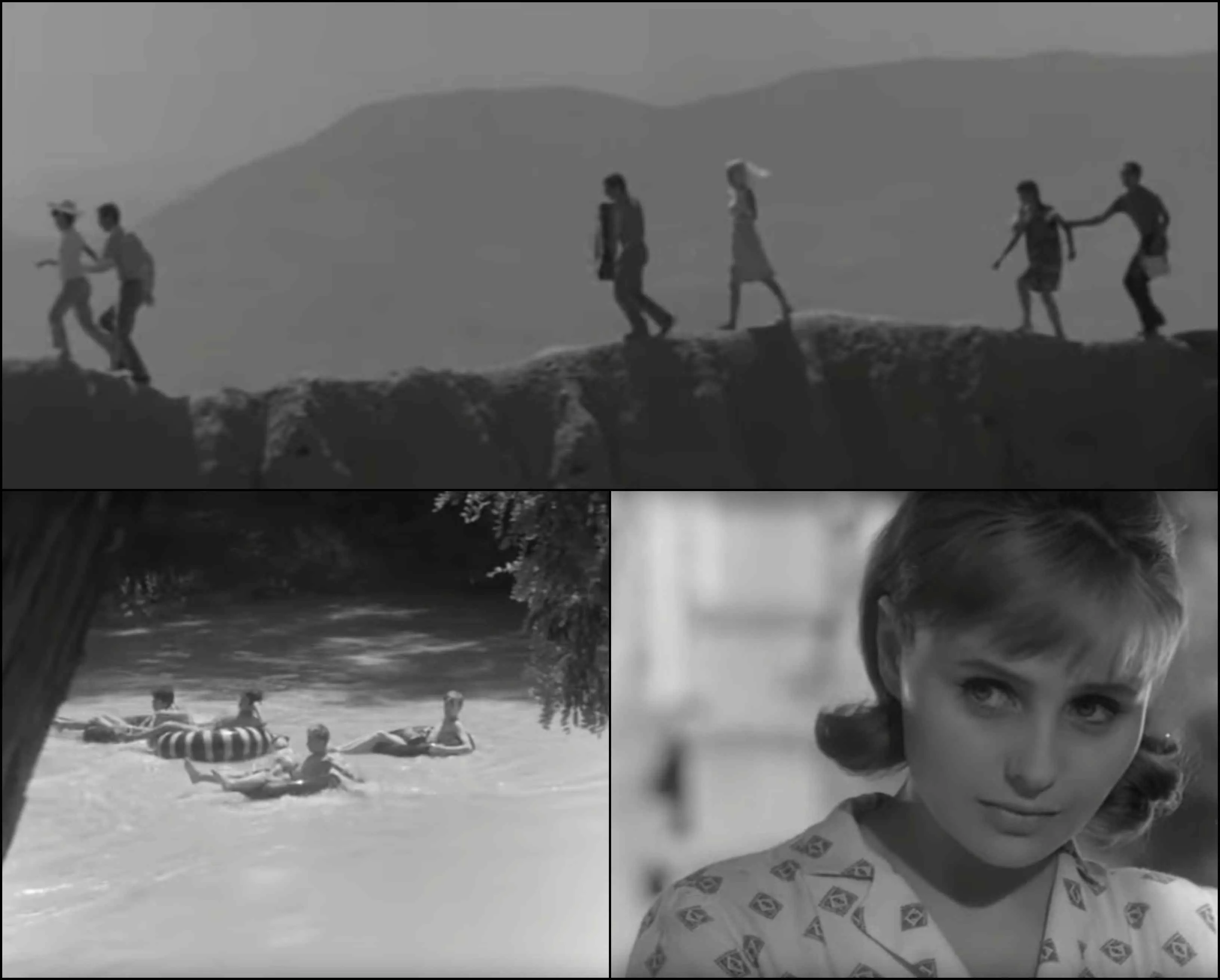
Nezhnost is a charming and delicately crafted coming-of-age tale, telling three intertwined stories of young love in Tashkent. Set against the backdrop of late 1960s Uzbekistan, the cinematography as well as the dialogue are clearly echoing the strict dedication to realism, influenced by Italian Neorealism and the French New Wave. It is a beautiful and graceful film with great music that stays with you long after you watch the film.
Neshnost is also available on YouTube, but again no English subtitles.
Fearless, 1971 (Bez strakha)
Directed by Ali Khamraev
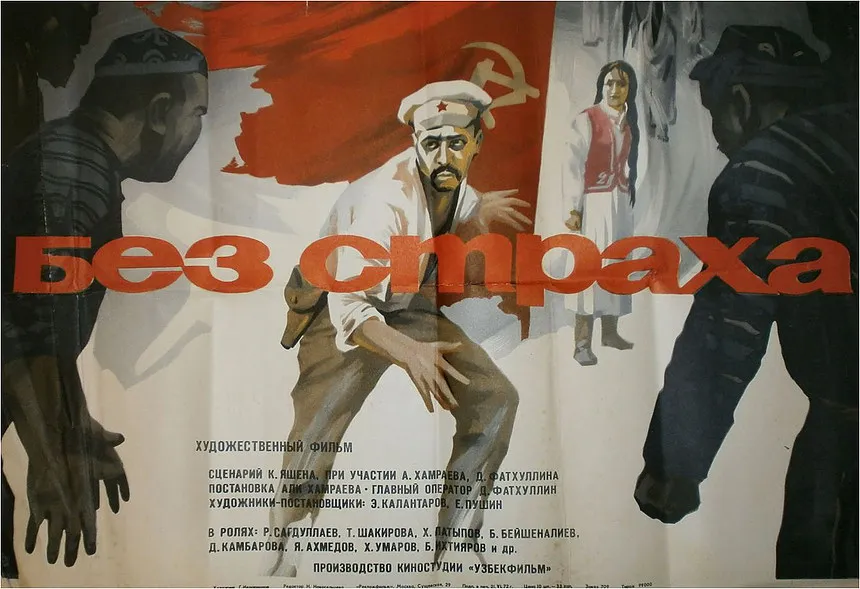
Soviet film poster on Fearless (photo: imdb.com)
Directed by the veteran Uzbek director Ali Khamraev, Fearless (also known as Without Fear) tackles the critical issue of progress enforcement on people with predominantly traditional beliefs and values. The film is set at the beginning of the Soviet period, in 1927, in the midst of campaigns for the redistribution of land and women’s “liberation” from veils, imposed by the Soviet regime. The story takes place in a village 60 km from Tashkent, where an ethnic-Uzbek Red Army officer is responsible for encouraging the women of the village to get rid of their veils, as part of the “liberation” campaign. Featuring masterfully crafted, complex characters in a nuanced exploration of the notion of progress, Fearless is a must-watch for those interested in Uzbek cinema.
Fearless is not available on YouTube, but many of Kharaev’s films have been uploaded on YouTube with English subtitles.
Man Follows Birds, 1976 (Chelovek ukhodit za ptitsami) Directed by Ali Khamraev
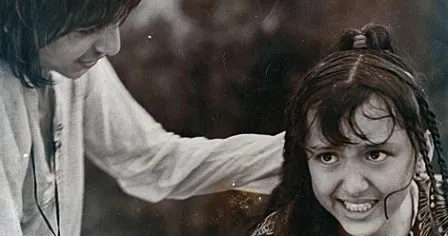
(photo: philippsfilm.com)
Man Follows Birds is another Khamraev film that deserves a respectable place in the history of Uzbekistan cinema. The story takes place during medieval times and revolves around a young boy, Farouk, who leaves the village of Khorezm, where he lives, to pursue a better and happier life. In his quest, he will be joined by other teenage boys, and they will deal with several difficulties throughout the way. Man Follows Birds is not an easy film to digest on first viewing. But its Parajanov-like visual grandeur along with an unconventional narrative structure make it an exceptional film, admirable for its rare qualities.
Orator, 1998 (Voiz)
Directed by Yusup Razykov
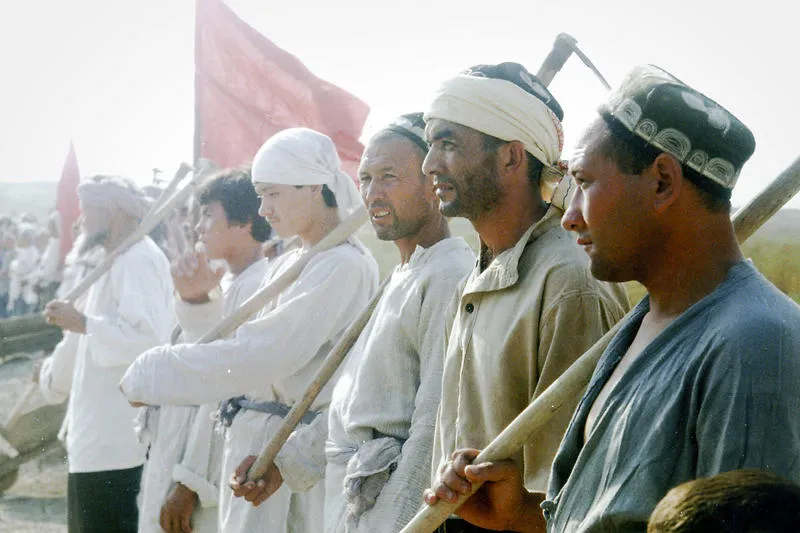
(photo: filmfestivalcottbus.com)
Orator is a historical film that offers an insider perspective on Soviet policies and power in Uzbekistan. The protagonist of the story is Iskander, a young Uzbek man who faces several challenges after becoming the interpreter and active propagator of the new communist regime in Uzbekistan. Like Khamraev’s Fearless, this film deals with the forced liberation of women from the veil and the inner clash between the new Bolshevik ideology and the traditional Islamic values.
You can watch the film with English subtitles here.
Boys in the Sky (2013)
Directed by Zulfikar Musakov

(photo: mubi.com)
Then, there is Boys in the Sky. When it first came out, this comedy was playing to packed houses in Tashkent’s few standing cinemas. The story follows the lives of four upper-class teenage boys in Tashkent: the shy son of a famous film director, a chubby cut-up, son of a rich and successful businessman, and a tough aspiring playwright who works after school to avoid his alcoholic father. The dynamics between the close friends change when a new girl, Lola, joins the class and the boys are attracted by her. It might not be even close to an art-house film but why not giving some credit to an entertaining film enjoyed by a lot of people in modern-day Uzbekistan?
Hot Bread, 2018 (Issiq non)
Directed by Umid Khamdamov
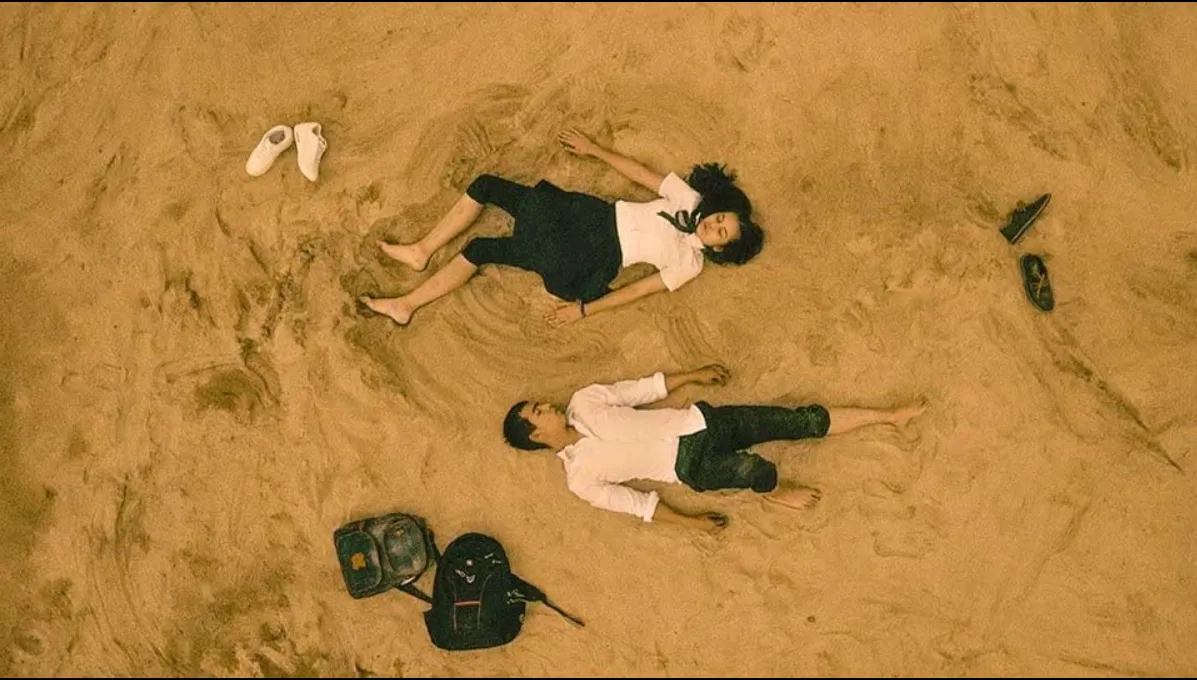
(photo: imdb.com)
Zulfiya is a teenage girl who is sent to live with her grandmother in a small Uzbek village while her mother works in a city. When life with her grandma becomes almost unbearable, Zulfiya wants to return to the city and stay with her mother. She is fearless and dynamic, which makes her relationship with the people surrounding her particularly interesting. Notably remembered for being the first-ever entry from Uzbekistan to the Best International Film category at the Oscars, this film is a great example of a well-thought and nicely crafted narrative.
2000 Songs of Farida (2020)
Directed by Yalkin Tuychiev

(photo: goldenglobes.com)
Lastly, one of the latest films that received a merit of limited international recognition is Yalkin Tuychiev’s 2000 Songs of Farida (also known as Farida’s 2000 Songs). Drawing on the little-known history of the area, Tuychiev tells the story of Kamil and his three wives, whose life changes when a fourth wife arrives. Set during the war between Muslim peoples of Central Asia and Soviet forces, the film is a story about the challenges local women are facing during the war and under patriarchy. For the director, “this film is neither a historical decoration nor a museum exhibition, nor an excursion into my ethnic background, but the exploration of a real-life, real people, their reality, dignity and truth.” Showing delicate, inventive filmmaking skills, Tuychiev is a distinct voice of modern Uzbekistan cinema.
The historical isolation of Central Asia along with the lack of resources for the production and circulation of movies has resulted in a relatively marginalised film industry in modern-day Uzbekistan. But could it be that those narratives are not just tales made in an obscure corner of the former Soviet empire but a culturally significant cinematic heritage with its own, interesting qualities?
Notes
-
The early period of Uzbek film under the USSR influence was well-researched by Cloé Drieu, who studied the long-feature films from Uzbekistan based on archival material, press and filmic analysis. You can read an informative interview with Cloé Drieu here.
-
For women’s perspective on Central Asian Cinema, I recommend reading this article.